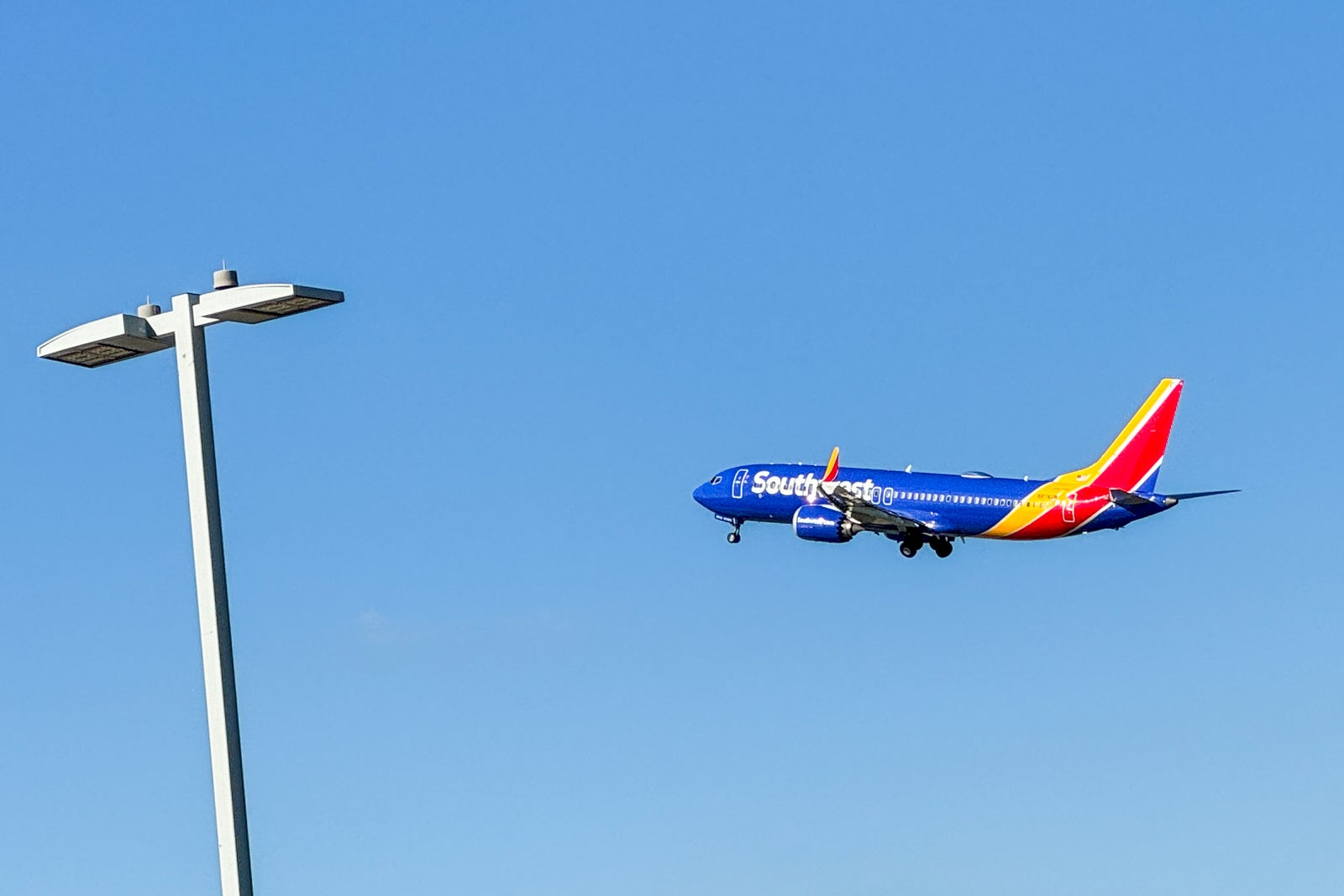Your Next Flight Might Be Sprayed With Pesticides. Is It Safe For Passengers?

- PBS's "Dream of Italy" host was surprised by an announcement about pesticide spraying on a recent British Airways flight.
- Some countries require disinsection on inbound flights to prevent the spread of insect-borne diseases.
- The U.S. does not require disinsection on flights, citing a lack of evidence of its effectiveness.
- The pesticide used, permethrin, is generally considered safe for humans but can cause irritation in some individuals.
Kathy McCabe has traveled to Italy multiple times a year for nearly three decades. However, on a recent British Airways flight from Heathrow to Milan, she was caught off guard by an announcement she'd never heard before.
Right before landing, the pilot of her April 2 flight said the crew would spray a pesticide inside the cabin, so passengers should close their eyes.
"I go to Italy two or three times a year, more sometimes when I'm doing a show or filming, and I was just really taken aback," the "Dream of Italy" host said. "I was just really surprised."
McCabe, 51, has a chronic condition known as Multiple Chemical Sensitivity (MCS), and immediately became alarmed. About 17 years ago, McCabe was living in a Washington, D.C., condo that housed toxic mold, which got her sick and triggered the genetic condition in which her body can't naturally process toxins.
"For me, it turned into chemical sensitivity, where the body thinks chemicals, you know, these toxins are all bad, and so I'm very reactive," she said. "I haven't worn perfume in like 12 years. I don't use any scented products."
As host of "Dream of Italy" and "Dream of Europe" on PBS and founder of Dream of Italy Magazine, McCabe is a frequent traveler who always asks for her hotel rooms to be fragrance-free. If she is exposed to chemicals, her throat can close, and she could experience brain fog or blurry vision, she said.
Fearing what could happen if she reacts to the pesticides, McCabe got up and asked a crew member if she could stand in the front of the plane while the cabin is sprayed, otherwise she'll likely have an adverse reaction. She said the crew was accommodating and spoke with the pilot, who decided against spraying the permethrin, a chemical commonly used as an insect repellent, and is used on planes to prevent the spread of mosquito-borne diseases.
British Airways told USA TODAY it complies with the health regulations set by international agencies to maintain safe travel for its employees and passengers.
McCabe turned to social media to share her experience, which she called "ironic," given that she was heading to the small Italian town called Saturnia to heal her body in its natural hot springs. McCabe hopes to bring awareness so that the travel industry becomes more transparent about spraying pesticides.
"I think that travelers are entitled to know more," she said. "I wish they would even say something before you boarded or before you flew."
Story continues below.
Yes, some are. It depends on the country you're flying into and its public health regulations. According to the Federal Aviation Administration, spraying pesticides in commercial airplanes has been in place to some degree since the mid-1940s.
Preventing the spread of insect-borne diseases like Zika, dengue fever and malaria by spraying pesticides or wiping down the cabin before boarding is a practice called disinsection, according to the Centers for Disease Control and Prevention. It can happen before or during the flight.
Several countries require disinsection on all inbound flights or if the aircraft has recently been to a region where these diseases are prevalent. According to the U.S. Department of Transportation, those that require pesticide sprays on all flights while passengers are onboard include:
- India
- Grenada
- Ecuador (only for Galapagos and Interislands)
- Madagascar
- Seychelles
- Trinidad and Tobago
- Uruguay
Other countries accept wiping down or spraying without passengers onboard on all flights coming in, like Australia, Fiji, New Zealand, Jamaica, and Chile.
Some countries – such as Indonesia, France, Thailand, the United Kingdom, Korea and Italy – only disinsect flights arriving from regions where these diseases are widespread within a specific timeframe. For all flights to Italy, the airplane will be disinsected if it has been in a country identified by the World Health Organization within 28 days, according to its National Plan for the Prevention, Surveillance, and Response to Arboviral Diseases 2020-2025.
However, in the U.S., the CDC has concluded there is no evidence that pesticides are effective in preventing these diseases and does not recommend this practice. In 2016, the U.S. Environmental Protection Agency set several restrictions, including that this can only happen when the aircraft is completely empty, with at least one hour before anyone boards. The plane must also be ventilated for 30 minutes until someone gets on.
Story continues below.
The pesticide most typically used to disinsect planes is permethrin, a synthetic chemical that kills and repels mosquitos, ticks and mites, according to Dr. Michael Policastro, a toxicologist and emergency medical physician in Cincinnati. (It's also used as an insect repellent on clothes and outdoor gear.)
"Simplistically speaking, its goal is to disrupt the nervous system of insects and spare humans the same level of effect," Policastro said, adding that humans have a greater capacity to metabolize and eliminate the chemical.
However, children, elderly passengers, and those with respiratory illnesses or neurological conditions may suffer irritant exposure when sprayed in the cabin. This can result in coughing, eye watering, nasal congestion, or potential skin irritation.
Some health organizations say more scientific research should be done on the impacts of long-term or high-concentrated exposures to permethrin, especially for crew members. Although it requires more study, Policastro said permethrin is considered a potential carcinogen and possibly causes neurological effects.
"There's a limited amount of literature that looks at long-term exposures in low concentrations to the air flight staff, meaning pilots and flight attendants," he said. "So I think it does warrant further study." A 2025 report by the WHO agreed, stating that existing scientific evidence is outdated and that there is "scant literature" of high-quality studies on the human health effects.
Policastro suggests travelers who may be sensitive to chemicals talk to their doctor before boarding a flight that qualifies for disinsemination. They can also wear long-sleeve shirts and pants to limit any skin contact with the chemicals.


